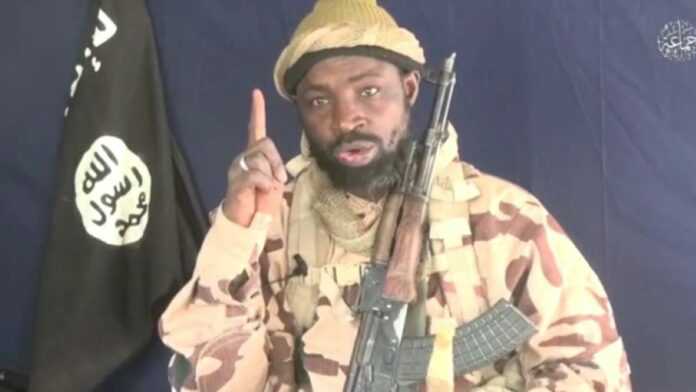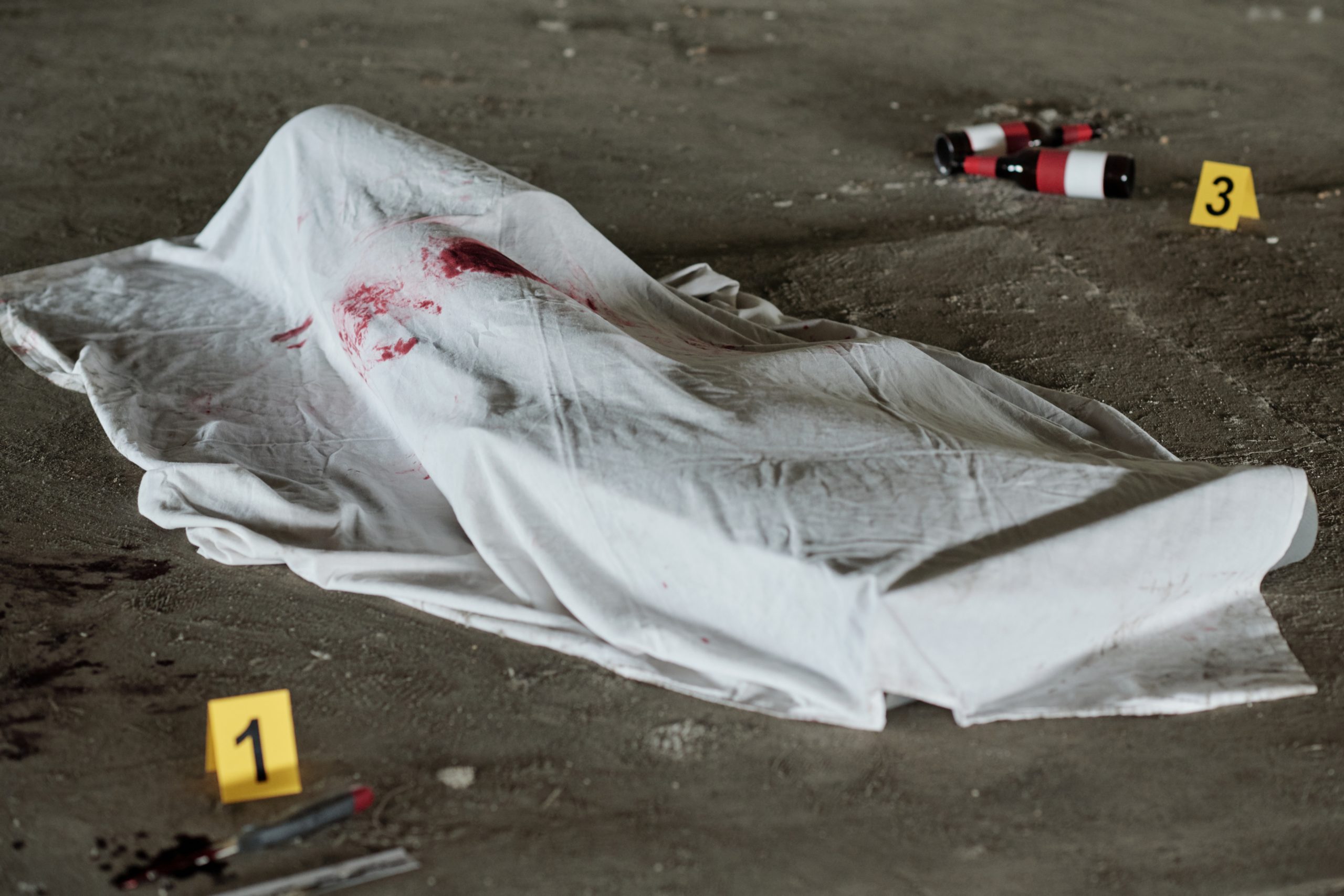RELIGION
NIGERIA -Boko Haram leader Abubakar Shekau dead, ISIS in West Africa confirms

Abubakar Shekau was pronounced dead at the end of May. The announcement of the ISWAP group, rival of Boko Haram, confirms what was then only a rumor and could well mark the end of the sect known for its bloody abuses, but also the beginning of the expansion of the Islamic State in Nigeria.
The leader of the terrorist group Boko Haram, Abubakar Shekau, died in May. In any case, this is what the Islamic State in West Africa (ISWAP) group announced, which, in an audio recording, confirms the information that had been circulating for several weeks.
“Shekau preferred humiliation in the Hereafter to humiliation on earth. He killed himself by setting off an explosive, “said the recording, the transcript of which was relayed by several media.
The audio recording describes the fighting between Abubakar Shekau’s troops and Iswap’s troops in Sambisa Forest over the past month. According to the ISIS-affiliated group, the head of Boko Haram, cornered by enemy fire, “retreated and escaped, wandering through the bush for five days.” Nonetheless, he adds, “the (Iswap) fighters continued to search and hunt him down until they were able to locate him.” Summoned to surrender, the terrorist leader preferred to kill himself, concludes the voice over the audio recording, which was attributed to Iswap leader Abu Musab Al-Barnawi.
The death of Abubakar Shekau was announced on May 20 by security sources who also raised the thesis of suicide following an altercation between Boko Haram and Iswap. However, neither the terrorists nor the Nigerian military confirmed this information, and Abuja had announced the opening of an investigation to verify what was then only a rumor.
Recall that clashes between the Boko Haram sect and the ISWAP group had already taken place in the past. Originally forming a single entity, the two groups split in 2016, when Shekau, who had previously pledged allegiance to the Islamic State group, was dismissed by the latter for “extremism”. Since then, they have become rivals and have clashed occasionally. The hunt that led to the death of Abubakar Shekau was reportedly ordered by the East-based caliph of IS himself.
The presence in Nigerian territory of these two terrorist organizations complicated the central government’s response to religious extremism. Since Boko Haram’s jihadist insurgency in 2009, the organization is estimated to have killed 40,000 people and forced nearly 2 million to flee their homes.
If other sources confirm Shekau’s death, Nigeria would likely be rid of one of the greatest threats to its security and territorial integrity. However, its demise would likely coincide with an expansion of ISWAP which is clearly seeking to expand its area of influence to Sambisa Forest, considered Boko Haram’s rear base.
The death of the terrorist leader has been announced several times by the Nigerian government in previous years. He had each time denied these allegations through videos.
Source : Agence Ecofin / By Moutiou Adjibi Nourou
RELIGION
IVORY COAST: All about the date of the Tabaski 2025

The date of the Tabaski festival in Côte d’Ivoire, also called Aid-El-Kébir, is known. It is set for Friday, June 6, 2025. The information is made official through a communiqué of the High Council of Imams (COSIM) and the Council of Sunni Imams (CODISS). These are the two Muslim religious authorities in the country.
“COSIM and CODISS inform the national community that the station in Arafat will take place on Thursday, June 5, 2025. Therefore, the festival of Tabaski will be celebrated in Côte d’Ivoire, incha’Allah, on Friday, June 6, 2025, corresponding to 10 Zoul-Hijja 1446 of the Hégire,” the statement reads.
Eid-al-Kebir is considered the most important holiday in the Muslim calendar. It is marked by the sacrifice of a ram. This sacrificial gesture recalls the act of faith of the prophet Ibrahim, ready to sacrifice his son in obedience to Allah.
Sources: africa-sur7
RELIGION
SENEGAL – More than 5 million people took part in the Touba Magal

Studies commissioned by the organizing committee of the great Magal of Touba indicate that 5,875,536 people responded to the call of Sheikh Ahmadou Bamba on Monday, September 4, 2023. The figure is the conclusion of investigations conducted by a team of experts led by Moubarack Lô, economist. In comparison with 2015, the difference is enormous even if, in its time, 4,119,551 pilgrims were counted in the religious city.
Ahmadou Bamba died in 1927 in Diourbel. But his legacy is perpetuated since then by his sons: Serigne Mouhamadou Moustapha Mbacké (1927-1945), El Hadj Falilou Mbacké (1945-1968), Serigne Abdoul Lahat Mbacké (1968-1989), Serigne Abdou Khadr Mbacké (1989-1990), Serigne Saliou Mbacké (1990-2007).
The disappearance in 2007 of Serigne Saliou Mbacké opened the accession of grandsons to the Khalifat: Serigne Mouhamadou Bara Mbacké (2007-2010), Serigne Sidy Moctar Mbacké (2010-2018).
Serigne Mountakha Bassirou Mbacké is the General Caliph of the Mourides since 2018.
The Magal, a Wolof term meaning to pay tribute, celebrate, magnify, is commemorated in memory of this exile which marks the beginning of a sum of hardships borne in conscience by the sheikh, following a pact contracted with his creator.
Each year, tens of thousands of pilgrims take the city of Touba by storm to gather and pray on the occasion of the Magal, which is also a moment of conviviality and hospitality through the ‘Berndae’, these hearty meals served to pilgrims.
RELIGION
NIGER – 7 killed in bandit raids on mosques

Bandits killed seven worshippers praying in two mosques, including the head of a village self-defense group in volatile northern Nigeria, Kaduna State Police announced on September 1, 2023.
Early Friday evening in Ikara district, a dozen members of criminal gangs arrived on motorcycles and opened fire on worshippers from the Saya-Saya community who were praying in a mosque, killing six of them, the state police spokesman said, Mansir Hassan, in a statement issued Saturday.
The attackers then attacked another mosque in a nearby village, where they killed one person and wounded three others, before stealing four motorcycles and disappearing into the bush, he added.
According to Abdulrahman Yusuf, the head of the Say-Saya community, the head of the village self-defence group is among those killed.
“We believe that he was the main target of the attack and that the bandits followed him to the mosque,” added Mr. Yusuf, one of the faithful survivors of the attack.
Kaduna is one of the states in central and northwestern Nigeria regularly bloodied by bandit groups that attack villages, kill and kidnap residents and burn their homes after looting them.
Criminals regularly target mosques and churches where they kidnap worshippers to obtain future ransoms or to avenge their comrades killed or arrested by local self-defence groups who fight them.
The Kaduna authorities are worried about a growing rapprochement between these gangs and jihadist groups that have been fighting the state for nearly 15 years for control of the northeast.




